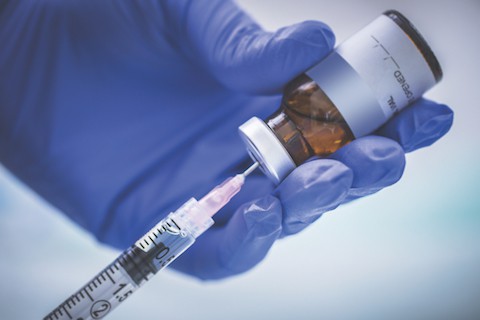
For vaccine developers who have signed agreements with the US for access to their potential shots, full payment is contingent on hitting certain time goals, according to certain sources.
Information from public documents and a Trump administration official reveals that the US government is tying certain payments for potential COVID-19 vaccines to specific timing goals, linked with production and approval milestones.
According to Reuters, Moderna will receive the full $1.5bn agreed for its vaccine if it receives approval by 31 January 2021, with the amount dropping to $1.2bn if it fails to meet this goal.
The biotech company will also receive $600m if it can demonstrate industrial-scale manufacturing capabilities for the vaccine.
The US government has signed a number of agreements for COVID-19 vaccines under its Operation Warp Scheme initiative. This includes candidates from Johnson & Johnson, Pfizer/BioNTech, Sanofi/GlaxoSmithKline, AstraZeneca/Oxford University and Novavax.
Although the full financial details of these other deals have not been released publicly, Pfizer said that its deal with the US for its vaccine, which is being jointly developed with BioNTech, is completely dependent on whether it receives regulatory approval.
Payments to other vaccine developers are also dependent on whether the launch of clinical trials occurs by at least the beginning of autumn, as well as bolstering manufacturing capabilities by the end of the year, although the terms vary between the respective companies.
Although the timescales are risky for the companies involved, the majority of those developing COVID-19 vaccines are already advancing their candidates into late-stage testing.
This includes Pfizer/BioNTech, who hope to have late-stage results for their vaccine by October, while Moderna has already begun a phase 3 clinical trial of its candidate in the US, which is aiming to enrol 30,000 volunteers.
However, critics have raised concerns over the speed at which these vaccines are being developed, with many highlighting that many pharmaceutical products fail in larger, phase 3 studies, although the success rate tends to be higher in vaccines than in other treatment areas.
To quash some of those concerns, US National Institutes of Health (NIH) Director Francis Collins recently said regulatory approval for any potential COVID-19 vaccine included in the government’s Operation Warp Speed is unlikely to occur before November at the absolute earliest.
“I know there is some concern because of this warp speed label that maybe corners are being cut that shouldn’t be. I want to reassure you and everybody else that we will not allow that to happen,” he said.
Earlier this month, Russia announced that it had produced and approved the world’s first COVID-19 vaccine, Sputnik-V. However, health experts from across the globe have criticised the move, saying that the vaccine should not have been approved before large-scale phase 3 safety trials were completed.




